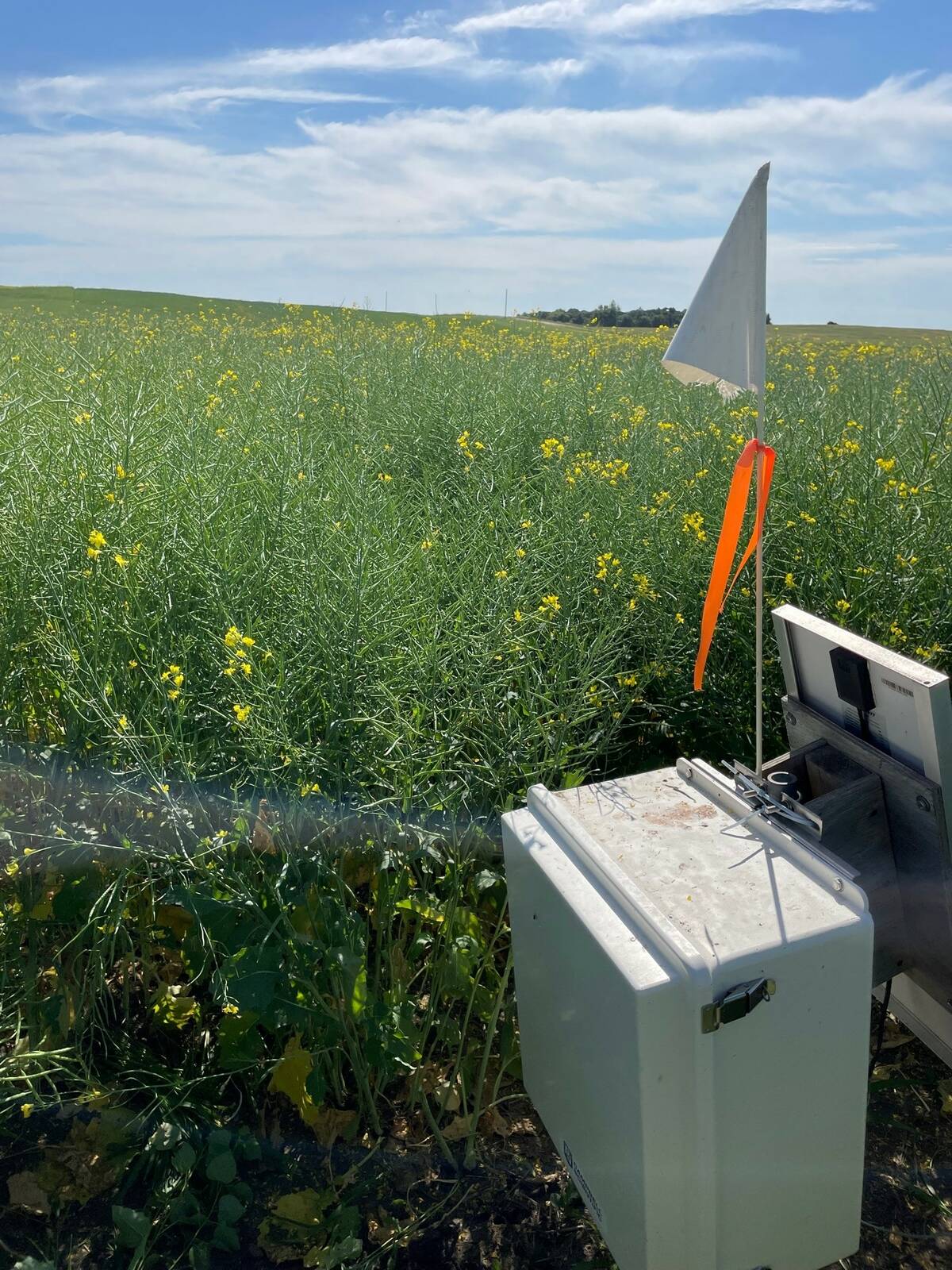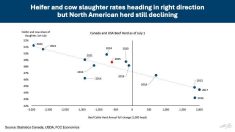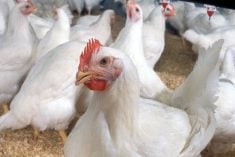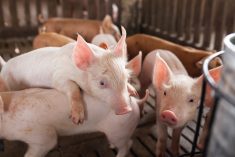The agriculture industry may be answering the wrong questions when addressing concerns about animal welfare.
“We’ve been providing answers to ‘can we?’ The public is asking ‘should we?’” said Amy te Plate-Church, a speaker with the U.S.-based Centre for Food Integrity and guest of honour at the Manitoba Pork Council’s annual meeting April 13.
While facts are important, “values win out,” te Plate-Church said.
Read Also

Where’s the water? RISMA knows
National soil moisture sensor network gives real-time data for Manitoba farmers fighting more frequent drought or flood.
Why it matters: Public engagement and trust are consistent conversations across livestock sectors.
For the pork sector, this relates to the importance of explaining the use of practices like gestation crates and farrowing stalls.
Social license — the ability to farm as farmers see fit — depends on public trust, and public trust in turn depends on consumers believing that producers are doing the right thing, te Plate-Church said.
Sixty per cent of Canadians say that, if animals are humanely treated, they have no problem eating meat, milk and eggs, according to 2022 Canadian Centre for Food Integrity research. However, only 34 per cent strongly agree that farmed animals are treated well.
The centre also asked people about key concerns related to food. Affordability and availability topped the list but 38 per cent said they were extremely concerned about the humane treatment of farm animals.
“Consumers do want real meat, milk and eggs from humanely treated animals,” te Plate-Church said. “They’re just not sure if they’re humanely treated. And that’s our opportunity to close that gap and provide that information.”
In the U.S., consumers bought a record amount of meat last year, according to the most recent “Power of Meat” study, te Plate-Church said. However, about a third of consumers said they were actively trying to reduce meat consumption, mainly by reducing portion size.
Cost was the main concern, but buyers also wondered about balanced diets, the effects of animal agriculture on the planet and the use of antibiotics, hormones and chemicals.
About half of consumers surveyed said that U.S. farmers have good animal welfare standards. About a quarter were unsure and about a quarter had negative perceptions.
Current influences
Consumer influencers and activists have some sway, te Plate-Church said. Policy makers and regulations have influence and branded food companies also help drive the conversation.
Regulations in the U.S. are a patchwork, she said. Where there is ambiguity in standards, the marketplace tends to define what’s not acceptable. Food companies that her organization talks with are under pressure from activists and have a lot to balance — animal care standards, environmental goals and human rights concerns, among others.
Some activism comes in conventional forms like pickets outside of stores, undercover videos and report cards from NGOs that measure a company’s practices against that organization’s values.
Shareholder activism has come to prominence in the last few years, according to the speaker.
Two prominent cases involved billionaire investor Carl Icahn, who in 2022 used his pull as a shareholder to attempt to influence McDonalds and U.S. grocery chain Kroger to change standards related to gestation stalls. Icahn lost his fight with McDonalds and backed down on Kroger, a June 2022 Reuters report said.
Both companies have since clarified their animal care standards. Kroger released new standards in August, which state that by 2025, it will source all pork from sows in group-housing systems.
“We expect suppliers to use group housing where sows spend the minimum time necessary in individual stalls,” the policy says, adding that sows should be moved to group housing no later than six weeks after breeding.
“Breeding and farrowing stalls are allowed to protect piglets not yet born and those recently born,” the policy states.
Strategy
Consumers have questions, te Plate-Church said. About 65 per cent want to know more about farming and food, according to her numbers.
“This is great, because we have folks that are curious,” she said.
Trust in food production comes down to three factors, she said: Consumers trust what influential people in their lives say; they trust as long as they believe producers are competent; and they trust if they are confident that producers have similar values to their own.
Farmers should talk about their farming practices, she said, but lead with their values.
















